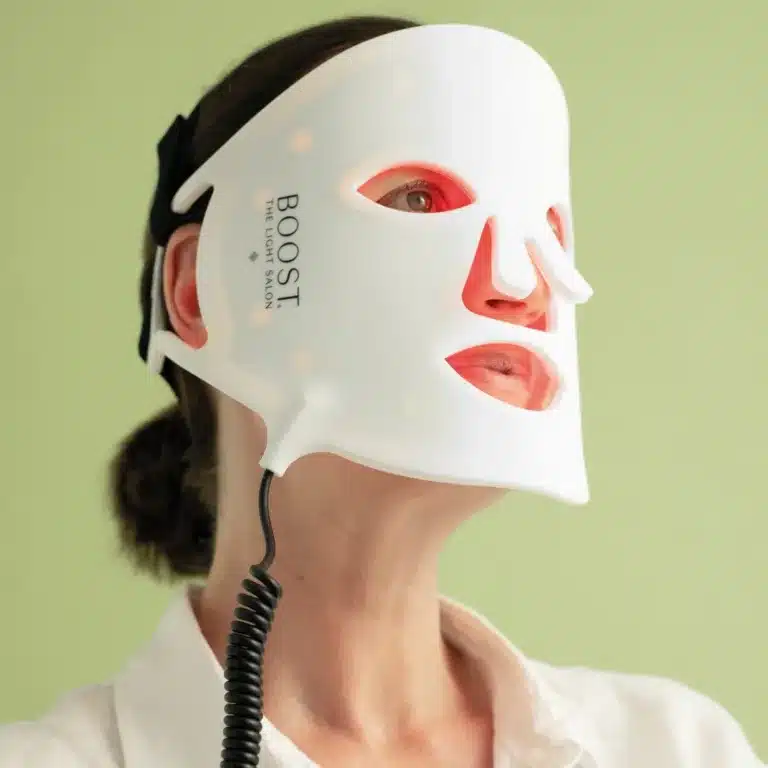TV Presenter Anna Williamson reveals her story and top tips for coping with anxiety
TV presenter and Anna Williamson suffered on and off with crippling anxiety and panic attacks since 2006. At the time she was hosting a kids TV show for ITV and juggling a lot of personal stress but didn’t realise the symptoms she was experiencing (extreme stress, panic, heart flutters etc) were to do with the emotional strain she was under.
After studying and qualifying as a counsellor, master NLP practitioner and life coach Anna now shares her personal experiences with whoever needs help coping with anxiety. She wrote her book, Breaking Mad, in order to normalise and bring her private coaching work to the masses in an accessible, easy to understand way.
How have your own experiences affected your interest in the subject?
I always say that something good can come from something bad, and in my case that’s true. I wouldn’t wish the crippling anxiety and panic disorder I’ve gone through on anyone, but in a way it’s been a huge positive in my life as I’ve turned what was horrendous and debilitating into something helpful to others. I’ve campaigned for the past ten years to destigmatise mental health issues and I’ll continue to fly that flag forever. It’s nothing to be ashamed or embarrassed about, the more we all accept and normalise it, the better it will be for the 1 in 4 of us coping and conquering it.
Do you think mental health problems are still stigmatised in 2016?
It’s getting better thanks to the increased media support around mental health. Having Wills, Kate and Harry on board for 2017 will really help too, and the more people speak out and share their own stories, the more it will help the masses. There still is a long way to go though before we categorise physical and mental health in the same way.
What’s your opinion on treating anxiety with therapy or medication?
I’m a big supporter of using both medication and therapy together when appropriate. Medication can serve a purpose and it has helped me get back on my feet, however medication needs to be supported by talking therapy as we need to treat the cause of the anxiety, not just the symptoms. Therapy by itself is great, and often all that is needed to help someone learn about and manage their anxiety.
What are your top tips for spotting GAD?
I was diagnosed with GAD and it’s important to notice how you’re feeling each day. If you’re feeling increasingly worried and full of fear and dread – and perhaps not sure why – then this can be a big sign that all is not well. Being fearful of everyday tasks, withdrawing from social events or people can also be signs that anxiety is having a hold. Physically you can feel sharp tightness in your chest, feeling dizzy and faint, and a general feeling of being ‘disconnected’ to yourself and life.
What advice would you give to people supporting those with anxiety problems?
Supporting someone who is experiencing anxiety can be tough – I’ve been very lucky with my friends and family – but it can be hard for someone when you’re not sure how, and what to do. Never push an anxiety sufferer into doing something – it will likely exacerbate the feelings. Let them guide you with what they need i.e. a hug, space, walk, chat, and support them and let them know that they are safe. Help them to breathe slowly and deeply as that is physically helpful. Familiarity and comfort are key to help an anxiety sufferer feel safe and calm, when we relax, the anxiety calms down – fact.
Why do you think the rate of anxiety has sky rocketed in the millennial generation?
I think we’re talking about it more which is a good thing, but we’re also under more pressure in life: finances, work, peers, family, we are all things to all people with little time and space. We’re also connected 24/7 with the internet and social media so it’s hard to ‘escape’ and recharge your mental batteries. When we’re tired, pressured and stressed it’s an anxiety breeding ground.
Is there hope for those suffering with GAD long-term? What first step can they make to breaking these negative thought patterns?
Absolutely there is hope for fellow GAD sufferers, I’m proof of that! Life is, and can be, great and it’s learning how and why your anxiety is peaking that is key. The first thing is reaching out and asking for help. There are so many exercises through therapy – many of which are in my book – that can effectively help recognise any worrying signs of anxiety: changing thought patterns, and dealing with any niggles straight away. GAD can feel super scary, but there is help, I promise.
What are your 5 best practical tips for combating anxious thoughts and feelings?
1. Breathe slowly and deeply to calm down physically
2. Take a break from whatever you’re doing and go for a walk
3. Write down any worries or concerns to get them out of your head
4. Call a friend for a chat and tell them how you’re feeling
5. Make yourself laugh, perhaps with a film… laughter is a great antidote to anxiety
Breaking Mad: The Insider’s Guide to Conquering Anxiety is available now
Image courtesy of fashionmenow.co.uk







